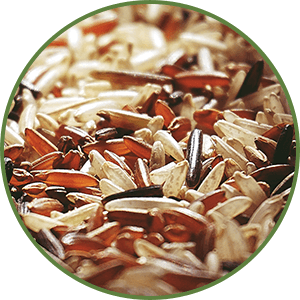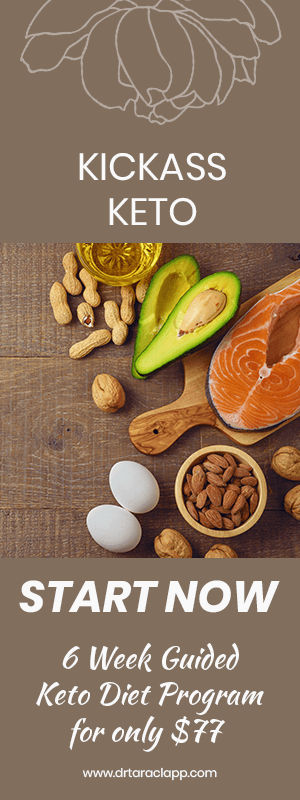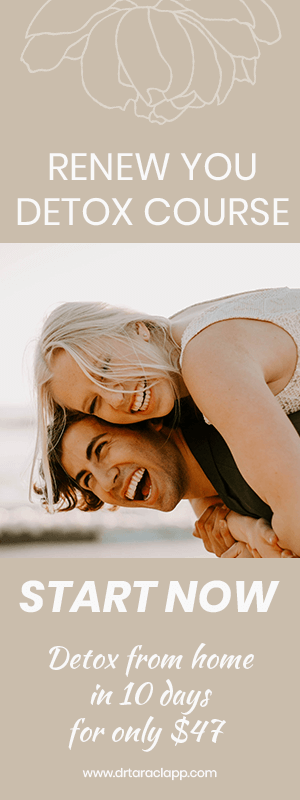
What Is The KickAss Keto Diet Program All About?
The ketogenic diet has become hugely popular over the last few years but there’s still a lot of confusion around what it involves. It’s one of the more well-known low carb lifestyles but it is quite different to the Atkins diet and many other diets that restrict carbs. As a naturopathic doctor, I add a little spin to it as well, trying to keep it anti-inflammatory!
So here’s what you need to know about eating a healthy keto lifestyle and what’s involved.
Benefits of a Low Carb or Keto Diet
Low carb diets have numerous benefits, including:
• Balanced blood sugar and insulin levels
• Hormone production and rebalancing
• Increased fat loss
• Reduced Triglycerides
• Increased your levels of HDL (the good cholesterol)
• You’ll be able to go hours without eating because your body will tap into its own body fat for energy
• Blood pressure will naturally go down
• Improved brain health and increased protection against dementia and other disorders
• Improved memory and clear brain fog
• Improved digestion
• Has been shown to slow cancer and tumor growth
• Increased energy levels
• Better fertility
• Help you achieve higher quality and longer restorative sleep
• Decreased anxiety and mood swings
• Reduced cravings & appetite
• Skin improvements
• Even possibly increased lifespan
So what is ketosis?
In a nutshell, ketosis is a fat-burning state that your body enters into when it has to burn fat for energy (instead of glucose).
To fully understand what ketosis means, let’s talk briefly about how your body normally burns energy and how that changes on the keto diet.
If glucose (sugar) is readily available in the body, it will automatically be used up first. Once this starts to happen, insulin is produced to help the process along. Because fats aren’t needed for energy, they are stored by your body instead.
With a ketogenic diet, this all changes. Because glucose isn’t the main source of energy for your body, fat is. So, your body has to turn to fats instead. When the liver starts to break down fat, it produces three types of ketones. The ketones enter our cells to be burned for energy. This is the state of ketosis. It’s the same state that your body enters if you’re fasting but it’s a lot easier to maintain in the longer term.
Eating keto is all about getting your body into ketosis. Once you’re in ketosis, your body burns ketones more efficiently than it would burn glucose, so you have more energy. Mental clarity improves. The body won’t store fats in the same way either: excess fat is a lot easier to burn off and weight loss is an inevitable result of this. So being in ketosis just means you are burning fat!
How do you encourage ketosis?
Most weight loss plans are restrictive in terms of calories, but this isn’t the case with the keto diet. Instead, ketosis is encouraged by limiting how many grams of carbohydrates and protein you eat and increasing the amount of fats in your diet. These three nutrients are known as “macros”.
This ketogenic nutrition plan is composed of the macronutrients fat, protein, and carbohydrates. The ketogenic diet is generally 60-80% fat, 10-30% protein and 5-10% carbohydrates. The variance in the ranges depends upon how active the individual is and how carbohydrate and protein sensitive they are.

Carb intake: It’s generally recommended that you stay below 35-50g for total carbs and 20g for net carbs. Net carbs can cause some confusion, but this just refers to the amount of carbs you’re left with when you subtract the fiber intake from the carb intake. For example, If you eat something that has 15g of carbs and 5g of fiber, the net carb amount is 10g. Eating less carbohydrate makes it easier for your body to get into ketosis, which is why the lower limit is often recommended most. Starchy foods are a big no-no so pasta, rice, bread and potato is best avoided, along with anything that contains lots of sugar. Sweeteners are okay as long as they’re keto friendly, like stevia and erythritol.

Protein intake: Protein is also restricted on the keto diet as it can raise blood sugar levels if it’s eaten in excess. The exact amount you should eat is usually based on your body weight. Experts generally recommend eating 0.6-0.8g of protein per kilogram of lean body mass, especially if weight loss is your main keto goal.

Fat intake: Fat is the big source of energy when you’re eating keto. This is one diet where you definitely don’t need to worry about how much fat you’re consuming! The bulk of your calories are going to come from fats.
Drinking water is super important when you go keto. This is for hydration and to help you to feel fuller. Tea and coffee are also acceptable keto drinks. Just don’t add any sugar to your cups! If you like sweet hot drinks, add keto sweeteners instead.
What does ketosis do to your body?
For most of us, our bodies are very used to breaking down carbs for energy and have a whole host of enzymes to help with this. When you go keto, your body is forced to switch focus and increase the enzymes to help it to break down fat instead.
In the meantime, your body will use up the glucose that’s still there and take glycogen from your muscles. This is why a lot of people find themselves feeling groggy and tired when they first go keto. It actually has a name … keto flu! Don’t worry though, this is just a temporary state. Upping your water intake and replacing electrolytes can help to reduce the effects.
Is it safe for everyone?
Most healthy people should do fine with keto eating but it’s worth checking with your doctor first if you’re on medication (especially for diabetes or high blood pressure), if you have any existing health conditions or you’re breastfeeding.
Want to start keto?
If you are ready to get started on a ketogenic diet and reap the benefits, join me! I have put together a 6 week program, KickAss Keto, that gives you all the tools and information you need to be successful: 6 weeks of menu plans and grocery lists, exercise manual, sweetener options, understanding the keto flu, keto swaps and substitutes, testing your ketones, and 12 educational videos!
Dr. Tara Clapp, ND

Dr. Tara Clapp, ND
Naturopathic Doctor Focusing on Anti-aging and Hormone Optimization
Dr. Tara Clapp, ND is a Board-certified Naturopathic Doctor and leading authority on Anti-Aging & Bio-Identical Hormones. Dr. Clapp, ND has taken numerous courses to advance her knowledge and has received certifications in Intravenous Nutrient Therapy, Mesotherapy & Injection Therapy for Anti-Aging & Pain Management, as well as First Line Therapy Weight Management.
Dr. Tara Clapp, ND uses specialized, leading-edge laboratory testing for better diagnostics & health. Dr. Tara Clapp, ND has special interests in anti-aging, bio-identical hormone therapy, food and nutrition, metabolic and hormone imbalances and digestive disorders.
Being a naturopathic doctor has proven to be an especially rewarding experience to Dr. Tara Clapp, ND as it allows her to take part in people’s transformation and realization of their health potential. Consequently, Dr. Tara Clapp, ND continually updates her skills through new courses and conferences, and uses this information to better her clients.
Dr. Tara Clapp, ND is a dedicated and caring physician, taking personal interest in her clients’ health and life.
Dr. Tara Clapp, ND has a passion for self-development programs that push her beyond regular physical and mental performance. Dr. Tara Clapp, ND enjoys practicing yoga and meditation, has a love of photography, and relaxes by scrapbooking and enjoying long walks with her dog.




